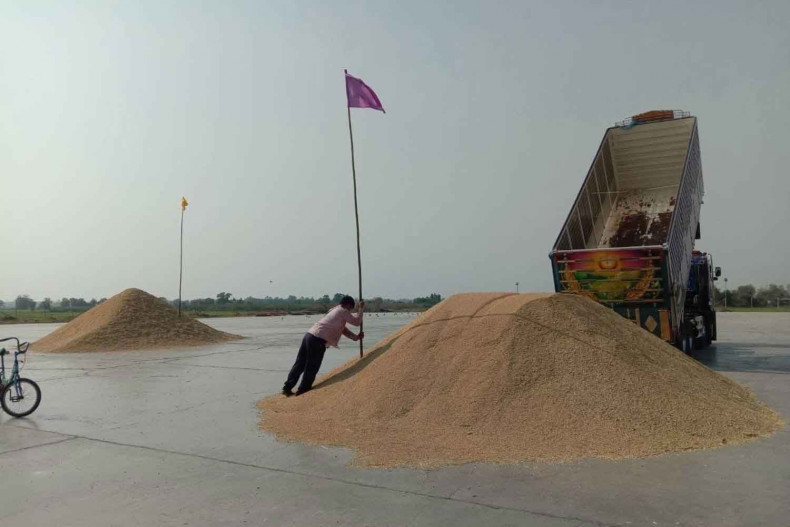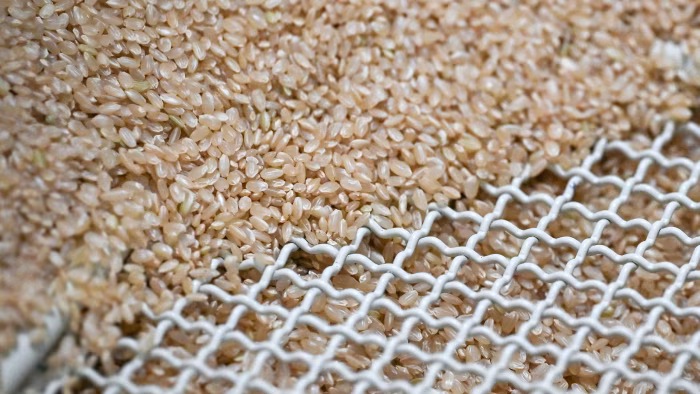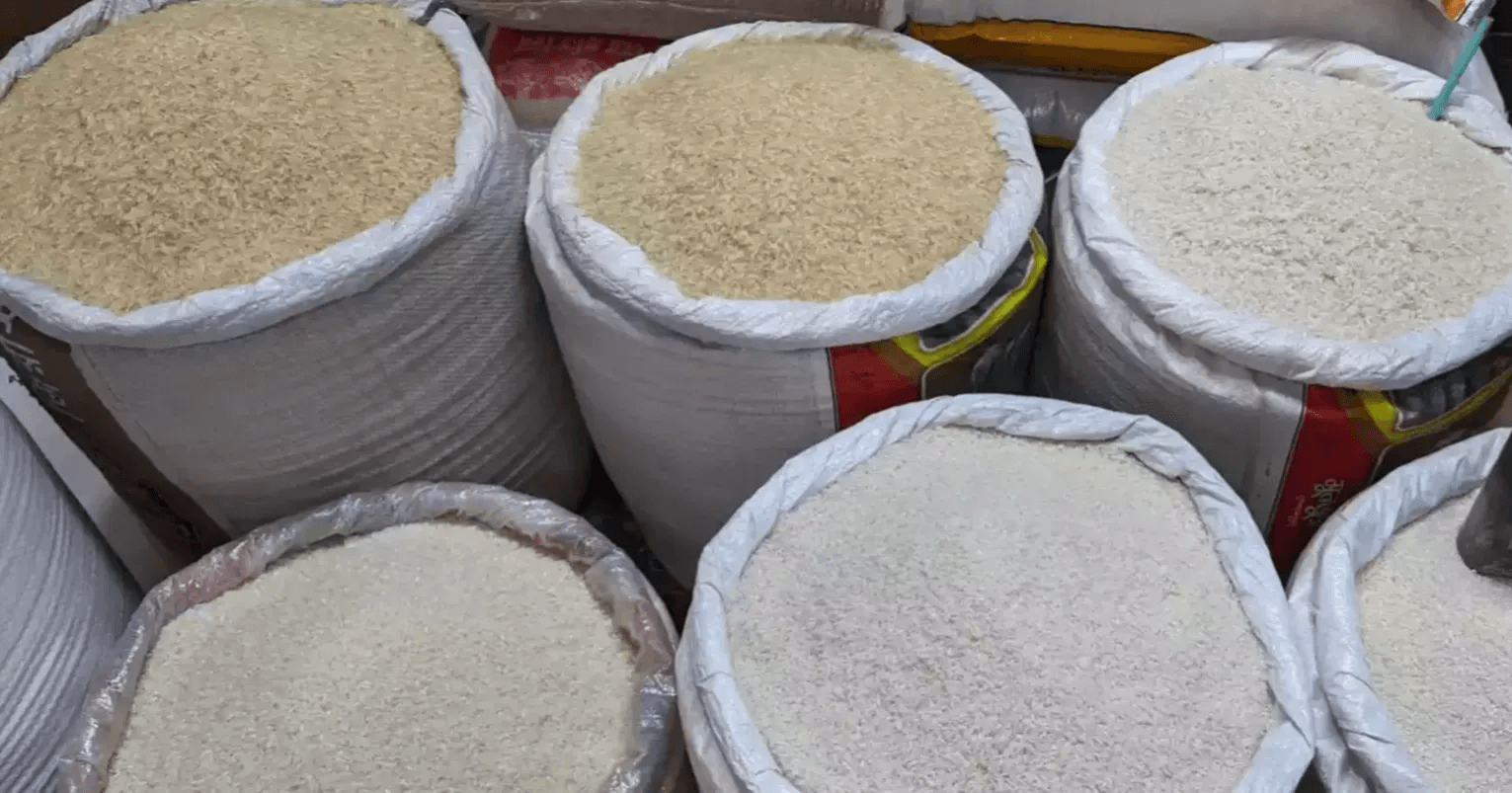Tags
Basmati rice GI tag: Advantage India as EU republishes Pakistan plea under a new clause
Latest development a clear indication of New Delhi being the owner of basmati rice, says expert
BY SUBRAMANI RA MANCOMBU

The latest development is seen as treating Pakistan’s application as “reactionary” in response to India’s application for GI tag | Photo Credit: Sanny11
In a development that gives India the advantage to gain geographical indication (GI) tag for its basmati rice, the European Union (EU) has re-published Pakistan’s application for such a tag for the fragrant rice under a new clause.
The EU re-published Pakistan’s GI application tag on April 30 under Article 49 (5) of regulation (EU) repealing the February 23 publication of Islamabad’s application by it under Article 50 (2) of EU regulation. “The re-publication of Pakistan’s application for GI is a clear indication that India clearly is the owner of basmati rice,” said S Chandrasekaran, a trade analyst and author of the book “Basmati Rice: The Natural History Geographical Indication”.
This is because India’s application, filed in July 2018, for GI tag has been listed under Article 50 (2) of EU regulation. The re-publication of Pakistan’s application has been done by the EU on its own, which is seen as an internal and technical decision.
What it means
Under Article 50(2), an application for GI tag can be submitted either directly or through a third country. However, in the case of Pakistan the EU has invoked Article 49(5), which stipulates that the product for which GI tag has been sought should be protected in the country of its origin.
The difference between Indian and Pakistan applications is that New Delhi filed first in 2018 and Pakistan five years later in August 2023. Second, the publication of India’s application for GI tag by the EU did not mention that basmati is grown in Pakistan. On the other hand, the publication of Pakistan basmati application says the long-grained rice is also being grown in specific areas of India.
Though the Book of Specification of Basmati rice by Pakistan does not mention that India grows basmati rice, the EU has inserted the sentence. This means the Indian application is being considered as primary and will be the foundation for fragrant rice’s GI tag. This development will result in the EU asking Pakistan to come back after talking to New Delhi and registering its basmati varieties in India once India objects to Islamabad’s application.
Diplomacy pays off
“Prime Minister Narendra Modi’s diplomacy is paying dividends,” said Chandrasekaran, pointing to the joint statements issued by India and the EU after the annual summit on October 6, 2017, and following EU-India leaders meeting on May 8, 2021.
In the 2017 statement, EU said it would “welcome India’s application for protection as a geographical indication of Basmati and shall process any such future application, as expeditiously as possible.”
In 2021, it said, “We recognised our mutual interest in protecting geographical indications. In this regard, we underlined the benefits of a balanced bilateral agreement on the protection of geographical indications. We look forward to the early conclusion of the MoU between the EU Intellectual Property Office and Department of Promotion of Industry and Internal Trade.”
The other issue that gives India the advantage is that basmati rice has been grown in the country for over 200 years, whereas Pakistan cannot claim so. A protected GI tag is given for a produce only if evidence is presented that it has been grown or produced for over 200 years.
Gain for Indian farmers
The EU will unlikely look at providing GI tag for “contemporary products” as it would affect its wine and cheese sectors. It will also put several bilateral GI agreements under Article 23 of Trade Related Intellectual Property Rights (TRIPS) under stress.
The latest development is seen as treating Pakistan’s application as “reactionary” in response to India’s application for GI tag. Pakistan passed its GI legislation in 2020 and registered basmati for GI tag there in January 2021. It came out with its Book of Specification of Basmati rice on August 28, 2023 — a case of the cart being put in front of the horse.
“The net result of the latest development is a boon to farmers in Haryana, Punjab, Uttar Pradesh and Himachal ,” said Chandrasekaran.
Even before this, India looked set to bag the GI tag for its basmati rice as it is set to strike a deal with the European Union on providing GI tags for one another’s products later this year.
India and the EC have held six rounds of negotiations till now on arriving at an agreement on the GI tags issue and the process will be speeded up soon after the elections to the Lok Sabha are over.
https://www.thehindubusinessline.com/economy/agri-business/basmati-rice-gi-tag-advantage-india-as-eu-republishes-pakistan-plea-under-a-new-clause/article68171618.ecePublished Date: May 14, 2024






